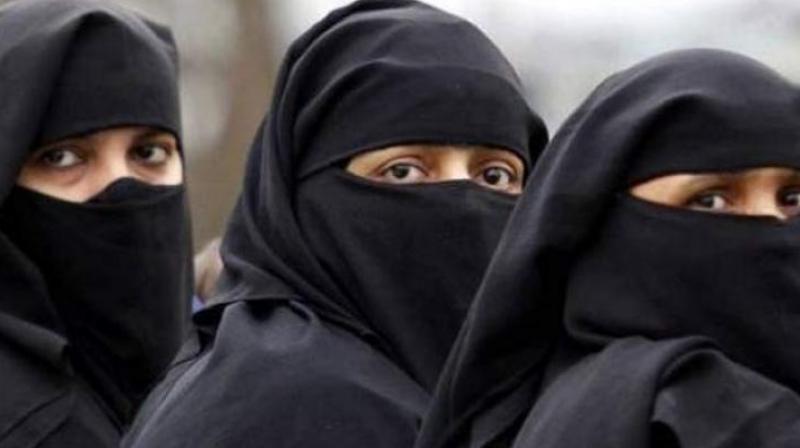Triple talaq ruling tomorrow
Supreme Court not to go into Uniform Civil Code issue.

New Delhi: The Supreme Court on Tuesday made it clear that it will not go into the question of Uniform Civil Code but confine itself only to the legal validity of “triple talaq” that was raised in petitions. A three-judge bench of Chief Justice J.S. Khehar, Justices N.V. Ramana and D.Y. Chandrachud gave this clarification when counsel wanted know whether Uniform Civil Code is one of the issues to be taken up for consideration.
The CJI said, “The UCC is not an issue at all in this case. It is a pure question of law. It is more of a human rights issue.”
The bench asked counsel to submit a list of points to be decided by the court on Thursday. The issues to be decided by the court include: (i) Whether the apex court has the jurisdiction to examine the Constitutional validity of the religious practices under challenge (talaq-e-bidat, nikah halala, and polygamy); (ii) whether triple talaq, a religious practice, is an integral part of religion, and, therefore, neither protected by Article 25 of the Constitution nor immune from judicial review; (iii) whether polygamy is a positive tenet of Islam or a valid religious practice? (iv) Whether instantaneous triple-talaq in one sitting (talaq-e-bidat) in the absence of witnesses and without any attempt at reconciliation is legally permissible; (v) whether the religious practices under challenge have been abolished by various Islamic states, which establishes the fact that such practices are not integral to the practice of Islam; (vi) and whether the apex court needs to intervene and protect the fundamental rights of Muslim women of India in the face of gender discrimination?
Triple talaq against equality: Supreme Court
The issues to be decided by the court include: Whether the religious practices under challenge have been denounced by recognised international organisations, including the United Nations Organisation, as they cause gender discrimination and also impact India’s treaty obligations under international treaties and covenants that India is signatory to? Whether the All India Muslim Personal Law Board and similar associations have the authority to determine and declare the personal law applicable in India for the numerous sects and sub-communities of Islam that exist in India and practice Islam in various ways?
The Narendra Modi government has already opposed the triple talaq form of divorce and said it is not an essential religious practice in Islam.
It said women in India should not be denied their constitutional rights even as several Muslim countries have undergone extensive reforms.
The Centre said practices like triple talaq are against the principles of equality and dignity enshrined in the Constitution and there is no reason that women in India should be denied their constitutional rights. The sanctity of triple talaq is completely misplaced in a secular country and is unfair, discriminatory and unreasonable.

